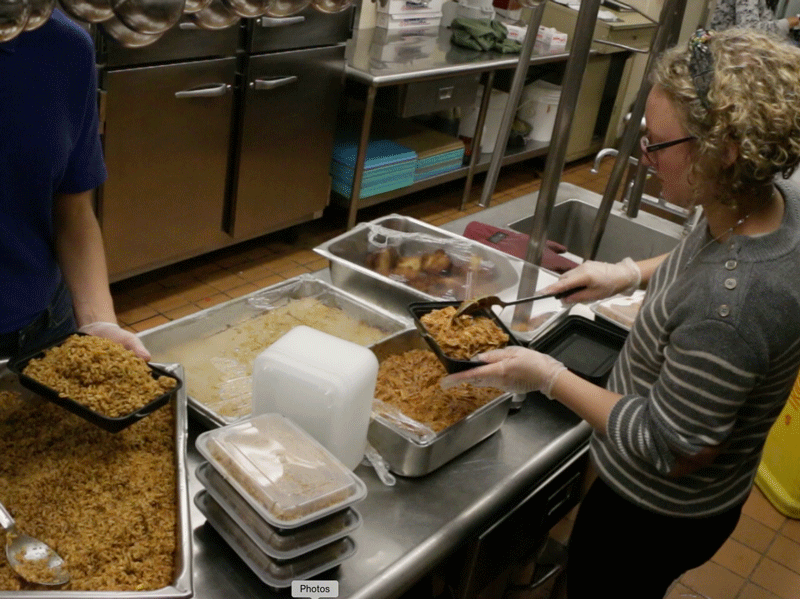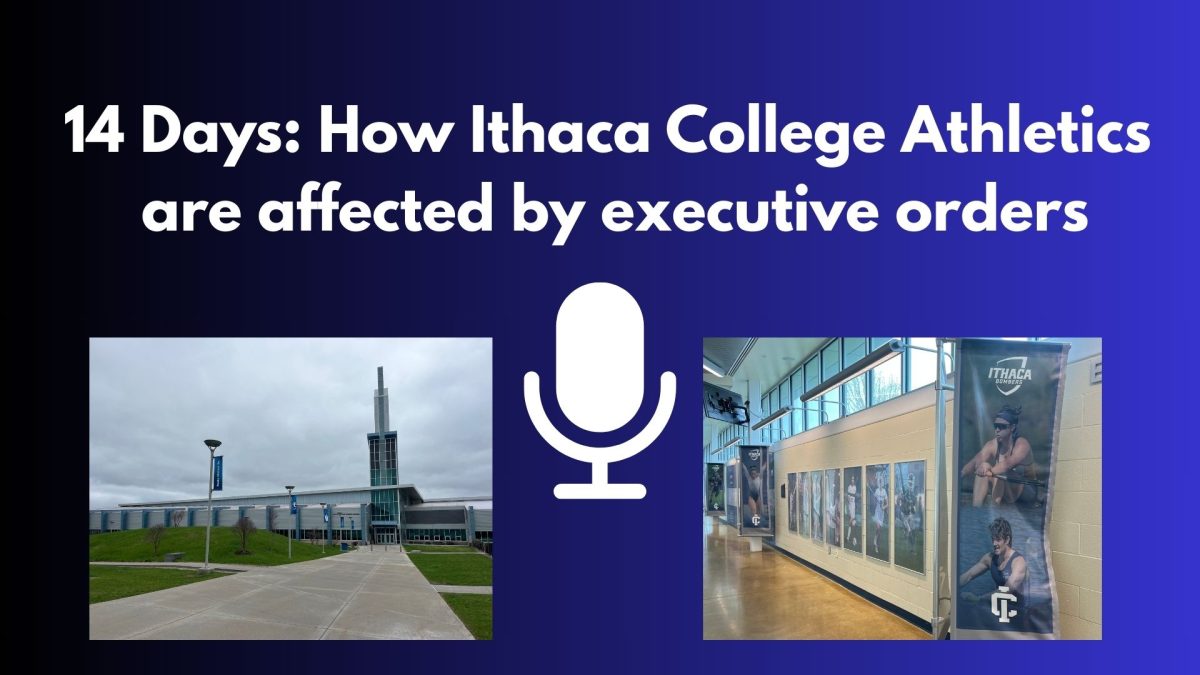Ithaca College junior Kate Zasowski scoops left over dining hall food into meal-sized plastic containers. With assembly-line efficiency, she and three other volunteers stack the containers and place them in two insulated travel bins, one after the other. The bins, settled in the back of a Subaru trunk, are then driven to the Rescue Mission where Zasowski and another volunteer are greeted by staff members thanking them for their donations.
Almost every Friday afternoon, these meals are transported from Ithaca College’s Towers Dining Hall to a local shelter, the Rescue Mission, with the efforts of the college’s student organization Stop Wasting Ithaca’s Food Today (SWIFT).
The Rescue Mission, located on W. State Street, provides support for individuals seeking assistance with food services, living arrangements, employment and transportation.
Kate Zasowski joined the organization her freshman year and became SWIFT’s president at the beginning of the 2015 academic year.
She said being a former dining hall employee encouraged her to get involved with an organization that takes advantage of its excess food. She liked that SWIFT provided food ready to be consumed for Rescue Mission attendants.
“When I saw [food] being thrown away, I was like ‘This shouldn’t be happening,’” Zasowski said. “There has got to be something that’s more productive and more humane than throwing it in the garbage.”
Towers Dining Hall Service Manager and SWIFT Advisor Brandon Innerst said waste from the dining hall varies each week. The dining hall sees larger amount of food wasted, which according to Innerst, can be stopped.
“We try to portion [food] and keep people from taking too much,” Innerst said. “If people were more conscious about what they can eat and what they will eat, a lot of waste would be [prevented].”
SWIFT packages food only from Towers Dining Hall, as opposed to all three, because it is the only one that closes on weekends. This allows them to devote time specifically to helping out the Rescue Mission.
“Some days we have to find things and get creative because we want [them] to be successful and bring food,” Innerst said. “To not have any would be unfortunate.”
Zasowski said that volunteering with SWIFT can fit into a very busy schedule. Despite only having minimal time, their contributions are substantial to the Rescue Mission.
“It’s not a huge time commitment but it really does make a difference,” she said.
When it comes to fighting hunger, Ithaca Rescue Mission Regional Director Richard Bennett said the Rescue Mission relies heavily on donations.
“We certainly need donations. It’s part of the way the Mission survives quite honestly,” Bennett said. “Really without the generosity of this community, I don’t know that we would actually be able to do as much as we do.”
Bennett said the shelter was successful in providing a total of 715 meals in September, but the amount they receive in donations is inconsistent.
“We use community resources and supports who donate food to us,” Bennett said. “That can vary depending on the week, depending on what’s been made available in the community.”
The Rescue Mission adheres to Federal food distribution guidelines, which ensures that food donations are safe for people to consume, Bennett said.
According to the United States Census Bureau, 46.4 percent of people living in the city of Ithaca were below the poverty level between 2009 and 2013.
People often associate homeless and hunger mainly with older men living alone, which Bennett said is a misconception.
“We are seeing more families and children, single moms, single dads in our program, taking advantage of [our services]. When we talk about feeding people, it’s all people,” he said. “It’s incredibly gratifying that there’s resources and organizations like SWIFT in this community that want to be part of that solution, that recognize the value of preserving that food and sharing it, and there’s people who need it.”







